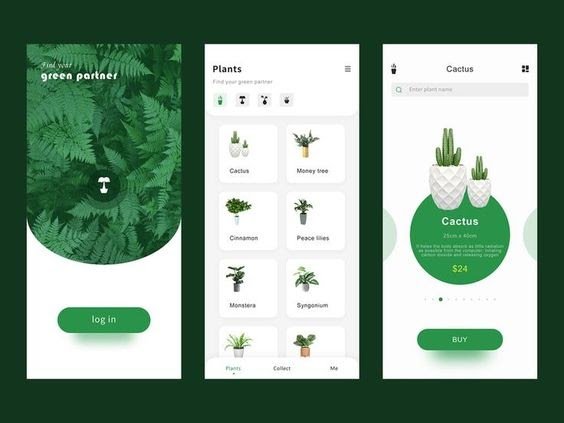It’s no secret that today, mobile apps are preferred by many business leaders as one of their main tools for customer reach. From the very beginning, the core goal behind developing mobile applications for businesses worldwide stayed the same – maximize the reach and provoke more user engagement. Nonetheless, if you are an established business or a startup, investing in a mobile app can enhance your visibility and make you stand out from the competition. The best way to run a business is to reach your target audience where the individuals prefer to spend most of their time.
Make no mistake, developing a mobile app for business purposes is not just another technological innovation. You need to have business knowledge and skills to develop a highly engaging and user-friendly experience packed in the form of an application. Here we are going to highlight the key points which every business owner, entrepreneur, and developer should consider while developing a mobile app for their business.

#1 Choose The Right Platform For Your App
The success of your mobile app depends on multiple factors. One of the most important things you should consider is the mobile platform that you will be focusing on with your app. Android and iOS are still the most popular operating systems in the world today, so the choice boils down to these two. In order to develop a mobile app for a specific platform, you have to use a coding language that’s natively supported by it. Just as an example, iOS apps are based on Swift or Objective-C and Android apps are developed using Java or Kotlin.
You are probably asking yourself if it’s possible to use one language to develop a mobile app for both platforms. The tech community realized this problem and as technologies were evolving, created one app that could be used across different platforms rather than creating separate apps. These hybrid cross-platform languages such as Xamarin, Ionic, etc. have their advantages and disadvantages and as a potential business owner, you should have a solid understanding of the differences between the platforms.
#2 Make Sure You Choose The Appropriate Hosting For Your App
While developing an app, a truly important aspect to take into consideration is your app hosting. There are several possibilities on the market and make sure to consult with a professional in order to choose the one that best suits your business plan.
- You can use a programming language to develop the backend for your apps;
- Host the backend for your app with already made tools such as Google App Engine flexible environment that uses docker hosting;
- Use MBaaS providers, that heavily rely on the Cloud computing model, where you use their service and they take care of your mobile app backend. There are a number of choices of MBaaS providers including AWS amplify and Google Firebase.

#3 App Security
The amount of personal information kept on mobile devices these days is absolutely staggering. From bank accounts and passwords to the exact location and favorite places – the smartphones we use have become a gold mine of information that many would like to get their hands on. To avoid that, the issue of data protection for both users and developers has never been so urgent. Avoid saving money on the security of your app because if suddenly something goes wrong – you can watch yourself and the app crash and burn.
#4 Implement An Outstanding Design And Forms In Your App
One of the most important things to consider while developing your app is its design. Applying a fantastic design to your app will bring clarity to the interface and remove all obstacles from the user. Don’t compromise on it, as beautiful forms are proven to convert and increase sales. Here are some useful tips that you might put to use:
- Get rid of any unnecessary elements that don’t support user tasks. By reducing the distractions, you will allow users to focus on the content they are looking for.
- Try to use a single input field whenever possible. Two, three or even more fields are making users switch between different input models and they might abandon your app due to the bad user experience caused by all the forms that split data into multiple fields and create frustration.
- Make your app as user-friendly as possible with a clean design without too many unnecessary details.

#5 Database
Nowadays, users rely on their mobile apps more and more. If the application they are using glitches or bugs for some reason, chances are that they are going to uninstall it. Keeping that in mind, having a speedy and functional database is crucial when it comes to the performance of your app. As with anything else, you should choose your database considering a number of factors. Before you have your final decision on your database you should already know the data structure you will probably need, the size of data that’s going to be stored, speed and scalability of it, accessibility of data and how you are going to secure the data you will work with.
#6 Mobile analytics
Using mobile analytics is an essential part of any technological innovation. It will definitely help you understand the reasons for the low adoption ratio of your app if that’s the case early on. Furthermore, you should implement mobile analytics associated with your business goals to recognize and enhance the performance of your app. Therefore, you should always know what kind of data you need to track and what kind of functionalities should be there to enhance the application. Mobile analytics help towards making better decisions and that’s a fact.
#7 Know your competition
Having a good and thorough understanding of your competitors sets you in a position to come up with something innovative and better. Try analyzing related apps that are somehow connected to your business idea and think. In the app world, there are hundreds of thousands of mobile apps built on one similar idea. Get the top 5 that are related to your intended app and analyze them, then deliver something different and extra to your customers. Go that extra mile and get ready to win the competition you are about to enter.

Cyber Security Researcher. Information security specialist, currently working as risk infrastructure specialist & investigator. He is a cyber-security researcher with over 25 years of experience. He has served with the Intelligence Agency as a Senior Intelligence Officer. He has also worked with Google and Citrix in development of cyber security solutions. He has aided the government and many federal agencies in thwarting many cyber crimes. He has been writing for us in his free time since last 5 years.











